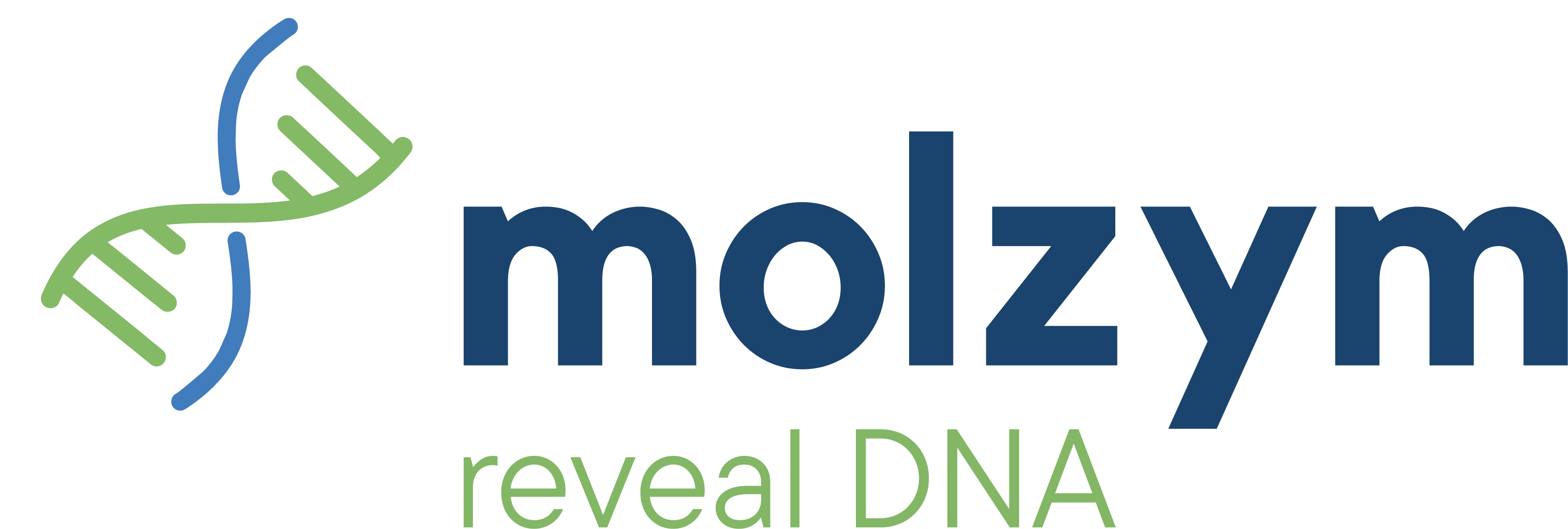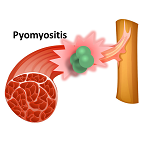16S rDNA PCR Diagnosis of Bacterial Pyomyositis |
| 02 October 2018 |
|
Gabas et al. [3] analysed pus collected from muscles by culture-independent, broad-range 16S rDNA PCR with sequencing and compared the results to culture. For this, the authors analysed pus using Molzym’s SepsiTest™-UMD. The kit provides the whole pathway from sample preparation to molecular analysis, including extraction of microbial DNA enriched from the sample, PCR amplification of the V3/V4 hypervariable region of the 16S rRNA gene and primers for amplicon Sanger sequencing analysis. Ten patients with pyomyositis were included in the study, six of them being immunocompromised. Muscle pus samples were collected three to 94 days (median: 27 days) after antibiotic treatment had been initiated. Four patients were culture-positive with Staphylococcus aureus, Proteus mirabilis, Arcanobacterium haemolyticus and Clostridium septicum. SepsiTest™-UMD identified the same organisms in the same patients. In addition, the remaining six patients were also positive, including Streptococcus pyogenes, S. agalactiae, Streptococcus spp., S. aureus (2x) and C. perfringens. Results from other cultured material or the clinical history supported the PCR results as true positive. The antibiotic treatment was optimised for all patients on the grounds of culture and molecular diagnostic results. All but one patient recovered after the adjusted treatment. The authors concluded that SepsiTest™-UMD was more accurate than routine culture in the identification of pathogens in antibiotic-treated patients. They recommended using 16S rDNA PCR like SepsiTest™-UMD as a tool for the diagnosis of pyomyositis. |
| References |
| [1] Crum NF (2004) Bacterial pyomyositis in the United States. Am J Med. 15, 420-428. |
| [2] Chauhan S, Jain S, Varma S, Chauhan SS (2014) Tropical pyomyositis (myositis tropicans): current perspective. Postgrad Med J 80, 267–270 (link). |
| [3] Gabas T, Podglajen I, Cheminet G, Gagnard JC, Wyplosz Benjamin (2018) Diagnostic accuracy of 16S rDNA PCR in bacterial pyomyositis. Poster P0085, ECCMID Congress, 21-24 April, Madrid, Spain (link). |
| Brochure Product Information |

 Pyomyositis is a purulent infection of skeletal muscles associated with abscess formation. Classically, pyomyositis is a tropical disease, although incidences in other temperate climates are increasing [1, 2]. Early diagnosis is important for an appropriate therapy to save tissue and the life of patients. The diagnosis of the aetiological agents of pyomyositis, however, is challenging, because up to 30% of pus cultures are negative [2]. Moreover, due to antibiotic treatment of patients cultures often stay negative.
Pyomyositis is a purulent infection of skeletal muscles associated with abscess formation. Classically, pyomyositis is a tropical disease, although incidences in other temperate climates are increasing [1, 2]. Early diagnosis is important for an appropriate therapy to save tissue and the life of patients. The diagnosis of the aetiological agents of pyomyositis, however, is challenging, because up to 30% of pus cultures are negative [2]. Moreover, due to antibiotic treatment of patients cultures often stay negative.